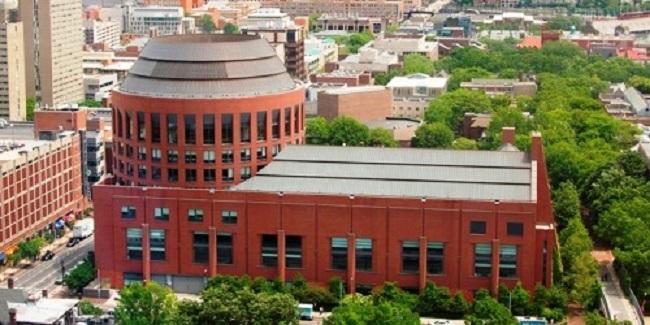Do You Apply To Upenn Or Wharton TheJoseph Wharton Scholars are a top percentage of Wharton undergraduates. Students are invited to the JWS program during the initial admission process to the University, based on their expressed interest in liberal arts and research, as well as academics. Wharton students are also eligible to apply for admission to the program at the end of their freshman year. The University sponsors the Benjamin Franklin Scholars and University Scholars programs. These two programs include students from all four undergraduate schools and have a dedicated professional advising staff and office.
Acceptance to these programs gives a student unique opportunities to take smaller honors classes and do intensive research. All honors classes at the university are available to the general student body with permission of the instructor. The Wharton Research Scholars, gives juniors and seniors the opportunity to work closely with faculty within a year-long research project. TheSummer Program for Undergraduate Research and theWharton Social Impact Research Experience provide students with summer research opportunities.
Penn's four undergraduate schools include a college of arts and sciences, a business school, an engineering school, and a school of nursing. No matter which school or major students are enrolled in, Penn emphasizes that all undergraduate students receive a thorough foundation in the liberal arts. Many students take courses across all four undergraduate schools and choose from countless interdisciplinary minors and dual degrees. MBA students are required to tailor their studies by choosing a major or double major from among 19 areas of study and completing at least five credit units in each major area. The 19 major options include the "individualized major," an opportunity for students to complete their majors in an area not adequately covered by the more standard offerings. Nearly 5 percent of students choose to pursue this path, while about 40% of students opt to double major.
The Wharton School awards the Bachelor of Science with a school-specific economics concentration, and Bachelor of Arts degrees focusing on core management, general business, and international studies at the undergraduate level. At the graduate level, the Master of Business Administration program offers dual studies leading to a joint degree from other schools (e.g., law, engineering, government). Similarly, in addition to its tracks in accounting, finance, operations, statistics and more, the doctoral program co-sponsors several diploma programs in conjunction with other schools within the University. The college was a pioneer in so-called 'Executive Education'; custom learning experiences that lead to academic enrichment, however with no standing.
During the application cycle for Wharton's class of 2022, 7,158 people applied to the full-time MBA program, and 916 enrolled. The average student had five years of work experience, a 722 GMAT score, and a 3.6 undergraduate GPA. Just like at any other business school, though, students who enrolled had a broader range of test scores, GPAs, and amount of work experience.
The university maintains four undergraduate schools which provide a combined 99 undergraduate programmes in sciences, business, humanities, and natural engineering. Providing a combine undergraduate graduation rate of 96 percent for six years, it also maintains 12 graduate and professional schools. It provides the option to practice specialized dual degree programs. The best thing about Penn is definitely the people or the students.
All students are motivated to do well, but also passionate about multiple interests. It is the perfect blend of a campus life located in a city and the perfect example of a school with well-rounded students. No matter what career you are considering Penn is the place to be. It is the school with the highest percentage of students with internships. One complaint might be that the culture is too pre-professional, but Penn has a great liberal arts program as well. It has some of the best programs in linguistics, psychology, and urban studies.
Penn is a campus where innovation and research are encouraged and fulfilled. Furthermore, it is one of the best colleges in terms of engaging and serving the community. Founded in 1881 as the first collegiate business school, the Wharton School of the University of Pennsylvania is recognized globally for intellectual leadership and ongoing innovation across every major discipline of business education.
With a broad global community and one of the most published business school faculties, Wharton creates economic and social value around the world. The School has 5,000 undergraduate, MBA, executive MBA, and doctoral students; more than 9,000 participants in executive education programs annually and a powerful alumni network of 94,000 graduates. Wharton's MBA Career Management Team offers a multitude of resources for MBA students seeking employment, including career education programs and mock interviews. Wharton students benefit from one-on-one advising in addition to employer information sessions, on-campus recruiting and job fairs, and varied opportunities for engagement with alumni. Students can also go on international and domestic career treks hosted by student clubs and MBA Career Management to meet with firms in many industries.
Wharton offers a four-year, blended program of business and liberal arts and sciences. Unlike most other business programs in which you must wait until your junior year to begin business courses. You also will be able to integrate your Wharton and non-Wharton courses throughout your four years of study at Penn. In the 2015–16 school year, 334 employers participated in the on-campus recruiting process; each student received an average of 7.6 first-round interviews and 1.8 job offers. About 48% of Wharton's typical undergraduate class of 650 students go into financial services, with the top sectors being investment banking, investment management, and private equity.
The next most common industry after finance is management consulting, which hires approximately 22% of the students, while a significant number of students enter marketing, sales, and the technology industry, particularly in Silicon Valley. Wharton Fellowship ProgramAll students who are admitted to this college are considered eligible for Wharton Fellowship support based on the application for admission. For starters, Wharton offers two fully-funded programs for students and professors to meet off-campus and dine at local restaurants. Traveling off-campus and meeting outside of the traditional classroom environment provides a meaningful opportunity for students to interact with professors on a personal level and engage in non-academic discussion. Free meals with professors not only facilitate close student-faculty relationships but also offer an excellent way for students to network and develop insight into career paths with advice from experts across many fields. The Student-Faculty Meal Program invites undergraduate and MBA students to dine with a professor, and the Lunch & Learn program provides Wharton undergraduates the option to invite professors out.
While such programs are currently on hold due to COVID-19 health concerns, students and professors would normally be given a budget that is fully-funded by the Wharton school. The University of Pennsylvania was founded in 1740 by Benjamin Franklin - the famous diplomat, author, inventor, and scientist. Penn is one of eight private universities known as the Ivy League. There are over 21,000 students at Penn, including 4,500 international students. In the past two decades, Penn has been home to 8 MacArthur Award recipients, 4 National Medal of Science recipients, 4 Nobel Prize recipients, and 2 Pulitzer Prize recipients.
The University of Pennsylvania is consistently ranked as one of the best universities in the US and in the world. Each year US News & World Report ranks Penn in the top 10 of their national Best Colleges rankings. The 2016 Academic Ranking of World Universities ranked Penn #18 among all universities worldwide. Penn's business school, Wharton, is the oldest school of business in the US and has been ranked #1 by Business Week, Wall Street Journal, and Financial Times magazines.
You will take at least one third of your classes outside of Wharton, in Penn's other 11 schools. Our flexible program combines the study of business and arts and sciences with dynamic professors and hands-on experiences. When you follow your interests and gain knowledge of the leading edge of business practices, you can succeed in any career you choose. Strengths - Great approachable Professors, almost any class or activity you can think of, wonderful diversity, beautiful campus. Greek life is active, but not necessary to have a rich social life.
Tuition, room and board are expensive but there's lots of aid available. Highly recommended, but very competitive admission rate ( around 8% ). Suggest applying Early Decision if Penn's your first choice ( 18% acceptance rate ). Students can choose from over 19 undergraduate concentrations, 19 MBA majors, and 9 doctoral programs.
It has awarded more than 200,000 certificates from Wharton Online. The school accepts applications for early decision by November 01, 2020, and for regular decision by January 05, 2021. It has a highly selective admission process that results in an acceptance rate of 9%. The organization consists of a beautiful campus that offers undergraduate, graduate, and doctoral programs in nearly 20 disciplines. Upon entering the Wharton MBA program, first-year students are immediately divided into Learning Teams of approximately five to six students. The teams are chosen with professional and personal diversity in mind.
When classes begin, multiple Learning Teams are brought together to form cohorts of about 70 students. Wharton students complete most of the core curriculum with their cohort fellows and work with the same faculty for their first year; they are better integrated into the Wharton learning community as a result. Wharton adds another layer of group activity through clusters which are groups of approximately 210 students from three cohorts.
These students share faculty and administrative resources as well as social elements of the program, like group community service projects. Course material at Wharton is delivered through a mix of lectures, case studies and field study. The Wharton School at the University of Pennsylvania in Philadelphia, Pennsylvania is the first ever collegiate business school. Wharton offers prospective MBA applicants either a two-year, full-time program or a two-year Executive MBA program. The school also affords students the option of pursuing an MBA/MA through the well-regarded Lauder Program. Wharton is distinctive among leading programs for its high percentage of international students, mandatory yet flexible majors, and rigorous quantitative training.
Prospective Wharton candidates apply in their senior year of high school either through the early decision process or regular decision process. These candidates are then grouped with a pool of applicants separate from those applying to the University of Pennsylvania's College of Arts and Sciences , School of Engineering and Applied Science , or School of Nursing. Each of the other three schools also forms its own separate pool of applicants.
I have experienced several life-defining moments at the University of Pennsylvania that I am sure I wouldn't have encountered anywhere else. During my college application process a few years ago, I wanted an institution that would be a good academic, financial, and social fit for me. Over my few years there, I have had moments that solidified for me that the school met all of the three aforementioned criteria. My years at Penn haven't been completely rosy - what with catching the infamous "freshman plague," challenging classes, and considering several majors before finding my niche.
However, I can safely say I will be walking away from the University with contacts of amazing professors and staff, and more importantly, lifelong friends who feel like family. Numerous aids are available for international students at the institute in the form of awards and scholarships for international students to study in the USA. The applicants are required to apply for any of the aid they are eligible for at the time of applying for admission to any of the programs in the college.
While Wharton's latest milestone of female representation puts it ahead of many other elite MBA programs, data shows that women's enrollment in business schools across the country has been increasing over the years. In 2013, roughly 33% of students enrolled in business school programs across the U.S. were women, according to the Forte Foundation. By 2019, that number had increased to 39%, with enrollment remaining roughly the same in 2020. Of the Forte Foundation's 52 member schools, 22 reported having more than 40% women enrolled in their business school programs in 2020, and eight reported having more than 45% women enrolled.
The undergraduate and professional profiles of Wharton students are quite diverse. The largest portion of the class, 39%, majored in the humanities, while another 33% had a STEM background. After graduation, enrolled students then earned an average of five years of work experience. In terms of industry experience, 23% of students had backgrounds in consulting, followed by financial services and private equity/venture capital each at 14%. Technology and non-profit/government were next at 10% each Investment banking and investment management claimed 5% total and another 4% of students split evenly across the healthcare and CPG/retail industries. In July 2014, Geoffrey Garrett assumed the role of the Wharton School's 13th dean.
A former Wharton management department faculty member , he previously served as dean of two business schools in Australia, the University of Sydney and the University of New South Wales. Given Wharton's reputation as a finance school, Dean Garrett's focus on globalization and innovation may, on the surface, appear to make him a surprise pick. However, Garrett believes in not resting on the laurels of Wharton's heritage and notes in a recent interview that " need to come to the world" as much as the world came to Wharton in the past.
Shaking things up with the opening of the Penn Wharton China Center is one example of how Garrett is putting his words into action. If you already know your direction in life, Wharton will put you miles ahead on your career path. If your interests are broad and varied, Wharton will help you fully explore a range of options while developing fundamental business skills. A Wharton education will help you transform personal interests and academic passions into career opportunities. You will be able to assume a responsible position sooner than other college graduates who lack a rigorous grounding in the fundamentals of business. Classes in business and finance abounded at the Wharton School, but it lacked in any other areas of business interest.
Edmund J. James, with a doctorate from the University of Halle in Germany, reinvigorated the school's curriculum, starting classes on political finance and administration. Later in 1885, James argued for redesigning the course of study at Wharton with elements of German higher education. He wanted to include training in banking, railroading, merchandising, manufacturing, and other similar branches, and expand the course's length to four years from the initial three. Joseph Wharton in November 1893 pledged an additional $75,000 to the school in order to implement James' ideas in the school's curriculum.
Between 1895 and 1915, James started teaching at Wharton the new fields of finance and management as they were developing in the business world. The Wharton School improved its reputation from a bunch of academic "misfits," and some of its alumni rose in the U.S. business world. During this period, the school continued to attract additional faculty members and expand its research programs. Penn is an elite private university located in Philadelphia, Pennsylvania. It is a large institution with an enrollment of 10,448 undergraduate students.
Admissions is extremely competitive as the Penn acceptance rate is only 8%. Popular majors include Finance, Management Sciences and Information Systems, and Philosophy. Graduating 96% of students, Penn alumni go on to earn a starting salary of $71,600. In fact, the school has made efforts in recent years to increase its stature in areas outside of finance. For example, it launched an Executive MBA program in 2001, through which students can complete their studies out of a newly-established campus building located in San Francisco. Wharton is widely considered among the best business schools in the world, with its undergraduate and graduate programs regularly ranked among the top 5 in global business school rankings.
The institute offers an array of courses for international students including undergraduate programs in over 19 disciplines, 19 MBA majors and a total of 9 doctoral programs. I believe that the intersection of these disciplines— and at the core of that, a comprehensive liberal arts education— can truly open my mind to tackling the world's problems with innovative solutions. I want to design an education for myself that helps me to consider problems like global warming holistically. Rather than a gain singular perspective from the hard sciences, business practices, or public policy, I can truly contribute to challenging the status-quo from the intersection of these subjects. An inside view of science and technology will also aid in my eventual plan to go into either environmental or intellectual property law.
If you have your heart set on getting into Wharton's MBA program, it will help if you went to an elite undergraduate school. In fact, it would really help if you did your undergraduate work at the University of Pennsylvania. The largest single group of students in Wharton's Class of 2013 had their undergraduate diplomas stamped at the business school's parent university.























